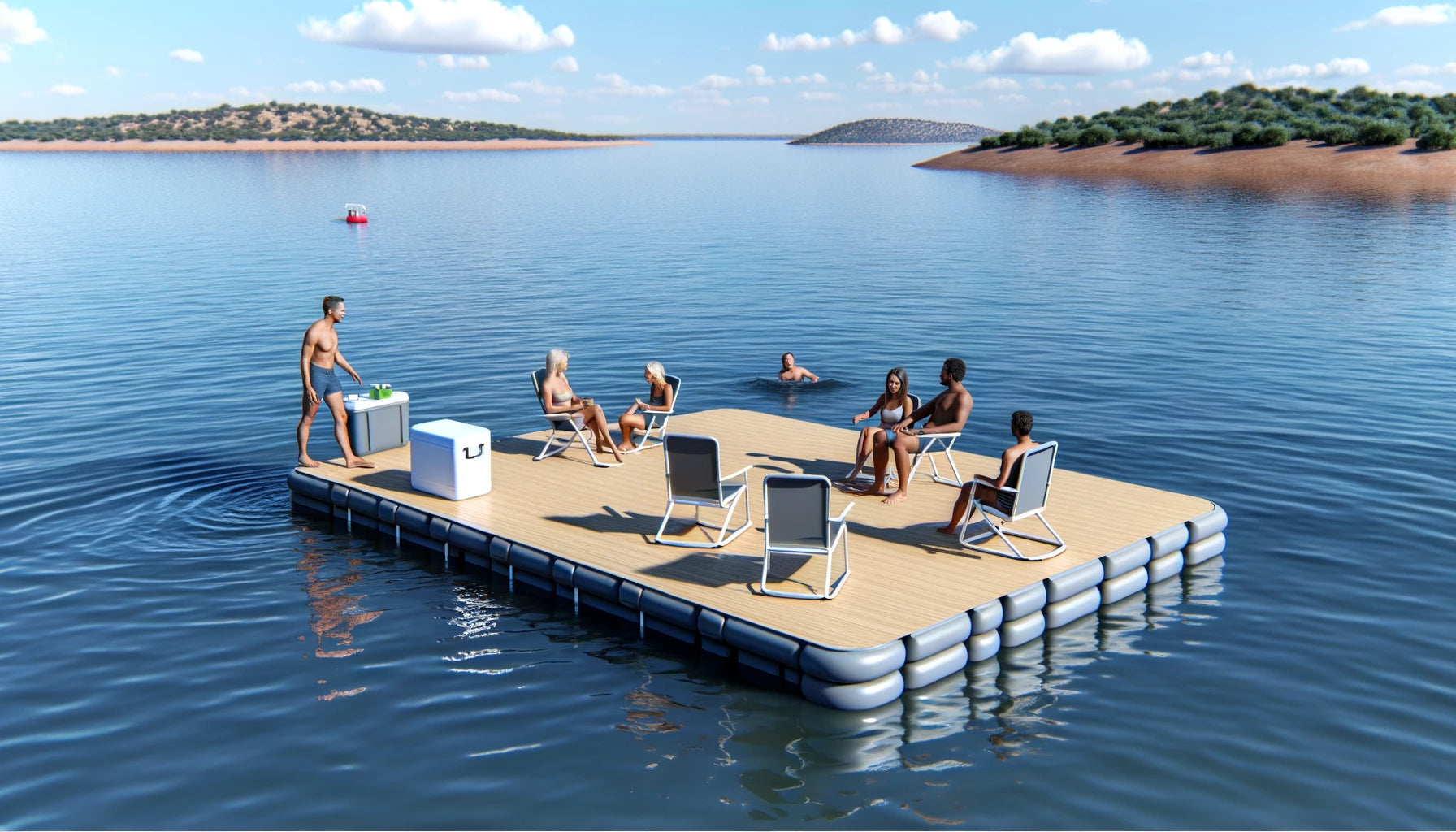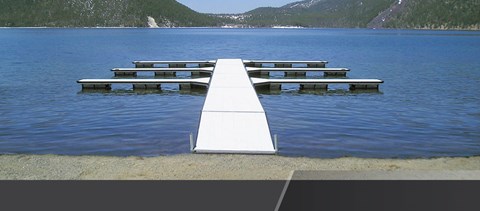What to Anticipate from a Trustworthy Floating Dock Company: Services and Assistance
What to Anticipate from a Trustworthy Floating Dock Company: Services and Assistance
Blog Article
The Ultimate Overview to Picking the very best Floating Docks
Selecting the optimal floating dock calls for a comprehensive understanding of different elements that affect both efficiency and longevity. Aspects such as dock types, materials, and essential attributes significantly affect your decision-making procedure. Considerations around installation and budget can additionally complicate the choice. By checking out these facets methodically, one can guarantee a financial investment that not only satisfies instant needs yet additionally improves overall property worth. As we discover these critical parts, it comes to be clear that the right options can lead to a enduring and functional option customized to your certain requirements.
Understanding Floating Dock Types
When picking a floating dock, it is important to recognize the various types readily available, as each offers unique purposes and applications. Floating docks largely come under three classifications: modular, stationary, and pontoon docks.
Modular docks are composed of specific areas that can be conveniently put together or reconfigured, making them suitable for transforming water degrees and varied usages, such as commercial procedures or leisure activities. Their versatility permits customization based upon certain demands.

Pontoon docks are identified by their resilient framework, often composed of multiple pontoons that offer stability and assistance. They are particularly well-suited for bigger vessels and are commonly utilized in marinas or for beachfront properties. Understanding these kinds aids in picking the most proper floating dock to fulfill particular requirements, making certain optimal functionality and security.
Trick Materials for Longevity
Choosing the best materials for floating docks dramatically influences their durability and long life. The most typical products consist of timber, plastic, metal, and composite products, each offering distinct benefits and restrictions.
Wood, usually preferred for its aesthetic allure, requires routine maintenance to hold up against moisture and degeneration. Pressure-treated lumber can boost resistance to rot, however it may still be vulnerable to insects and weathering.

Plastic docks, constructed from high-density polyethylene (HDPE), are immune to rust, UV radiation, and influence, making them a prominent selection for seaside settings. Their light-weight nature likewise assists in simple setup and moving.
Steel docks, normally created from aluminum or galvanized steel, provide extraordinary stamina and longevity. They are immune to corrosion, especially when dealt with, yet might need extra insulation to avoid warm buildup in hot environments.
Composite products, integrating timber fibers and plastics, supply the advantages of both wood and plastic, standing up to moisture and fading while needing minimal maintenance. - dock company
Ultimately, the option of materials need to line up with ecological conditions, planned use, and upkeep choices to guarantee the floating dock remains practical and visually pleasing in time.
Important Attributes to Consider
While the choice of materials is crucial, thinking about important functions for floating docks is equally crucial to ensure ideal efficiency and user complete satisfaction. One essential feature to assess is the dock's buoyancy capability, which determines exactly how much weight it can sustain without submerging. floating dock builder. This is essential for accommodating watercrafts, individual watercraft, and even leisure activities
Additionally, mobility is a significant factor to consider. Relying on your demands, you might desire a dock that is easy to dismantle and more move, specifically if you prepare to relocate it seasonally. Stability is an additional important feature; a properly designed floating dock should minimize movement triggered by wind and water currents, providing a safe and secure platform for individuals.
Safety and security functions, such as non-slip surface areas and rounded edges, are likewise crucial to stop accidents, particularly in wet conditions. Think about the availability of devices, such as bumpers, cleats, and ladders, which can improve the performance of your dock.
Setup and Maintenance Tips
Setting up and maintaining a drifting dock calls for cautious preparation and interest to information to ensure its long life and optimum efficiency. Begin by picking a suitable area that minimizes direct exposure to strong currents and waves, which can trigger damage. Make certain that the water deepness suffices for the dock's elevation and that it is secured safely to avoid activity.
Throughout setup, comply with the supplier's standards very closely, as inappropriate setting up can endanger security. Use high-quality products resistant to corrosion, such as aluminum or dealt with wood, to enhance longevity. Frequently examine all elements, consisting of drifts, adapters, and securing systems, for signs of damage or wear.
If your dock uses flotation devices, guarantee they stay intact and cost-free from punctures. By adhering to these installment and upkeep pointers, you can enjoy a functional and trusted floating dock for years to come.
Budgeting for Your Dock
Budgeting for your dock is a vital action that can significantly influence your total contentment and investment in a beachfront property. Establishing a clear budget assists you browse the different options readily available and guarantees you make educated choices that align with your financial capabilities.
Begin by establishing the dimension and style of the dock you call for, as these variables will considerably affect the price. Floating docks can differ considerably in cost, depending on materials, buoyancy, and attributes like ramps and devices. Study various suppliers and distributors to look at here contrast rates and comprehend the market value.
In enhancement to preliminary costs, think about continuous costs such as upkeep, insurance, and possible repair work. Allocate funds for these recurring prices to prevent surprises down the line. this content It's likewise sensible to spending plan for any essential permits or examinations, which might be called for by local laws.
Lastly, bear in mind the potential roi. A tactical dock can boost your property's value and appeal, giving a positive economic impact in the long-term. By budgeting successfully, you can make certain that your dock meets your requirements without jeopardizing your financial stability.
Verdict
In conclusion, picking the suitable floating dock demands a thorough examination of different aspects, including dock types, materials, vital features, and installation procedures. Mindful consideration of monetary restrictions will additionally guarantee a sound investment.

While the selection of materials is critical, taking into consideration important attributes for floating docks is just as essential to ensure optimum performance and individual fulfillment.Setting up and maintaining a drifting dock needs careful preparation and focus to detail to guarantee its longevity and optimum efficiency. Floating docks can vary significantly in cost, depending on products, buoyancy, and functions like ramps and accessories.In final thought, choosing the excellent floating dock necessitates a detailed analysis of different factors, including dock types, products, vital features, and installation processes.
Report this page